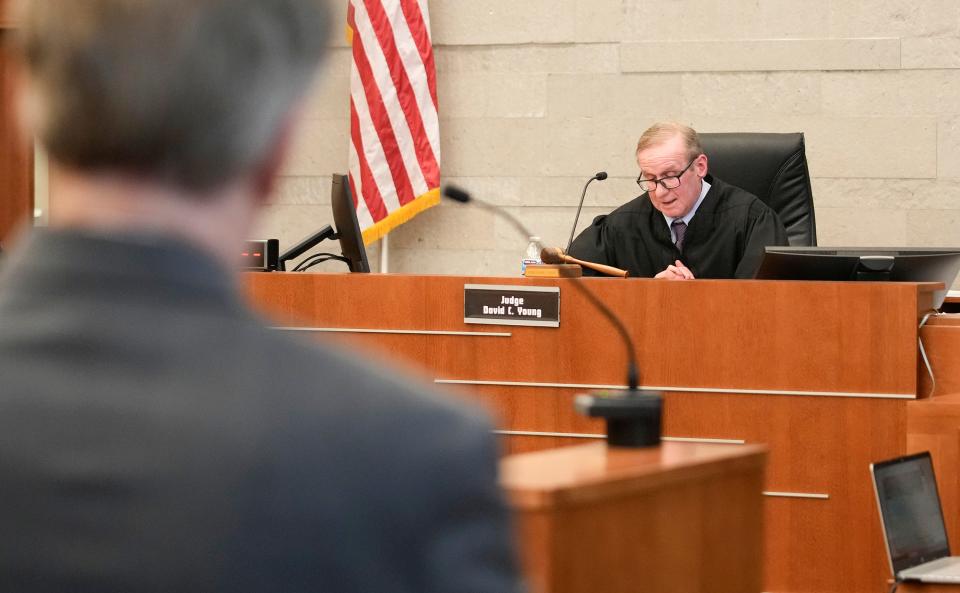What is the meaning of mistrial? What the hung jury means for Jason Meade
Instead of a typical finding of guilty or not guilty, the case of Jason Meade, a former Franklin County Sheriff's Office deputy charged with murder in connection with the December 2020 shooting of a Black man, was declared a mistrial.
You may be wondering exactly what a mistrial is and what it means for Meade, and what comes next after the Dec. 4, 2020, killing of 23-year-old Casey Goodson Jr.

Legalese is practically its own language and sometimes you need a lawyer or a legal dictionary to decipher the meaning of legal terms. From "acquittal" to "writ of certiorari," there's at least one term or phrase associated with almost every letter of the alphabet. For some letters, there are several.
You do not need to be a lawyer to know some legalese. In fact, you probably already know a bit. Nevertheless, it's important to recognize and understand what some of it means, especially if you're called for jury duty.
If you want to brush up on your law vocabulary, here is what a mistrial is and what happens when a judge calls a mistrial.
What is a mistrial?
There are two common ways a mistrial takes place.
When a jury is unable to reach a verdict after numerous attempts (a "hung jury") then a mistrial results, as in the case of Meade.
A mistrial can also occur if a judge determines there has been a procedural error or misconduct that could prejudice the jury. According to Cornell Law, some of the procedural grounds for a judge to declare a mistrial include:
Wrongly allowing biased evidence to be admitted
Misconduct by the court, counsel, parties or witnesses
Jury errors
Mistrials can be declared in criminal or civil court proceedings.
Requests for a mistrial are often made immediately after an error occurs, states Cornell Law. This is done in order to avoid tainting the verdict with "prejudice."
What happens after a mistrial?
If a mistrial occurs, the current trial is terminated and considered "void," according to Britannica.
This means that the prior proceedings are no longer valid, and the process for a new trial must begin with the same parties and charges but a new jury (if there is a jury).
Because a mistrial is neither a finding of innocence nor guilt, a prosecutor in a criminal case can decide to retry the defendant.
Will there be another trial?
That depends on the prosecutors.
While most prosecutors choose to retry a case following the mistrial, some may reevaluate the case and decide the evidence isn't strong enough to reach a verdict of guilty beyond a reasonable doubt.
Olivia Munson is a trending reporter for USA TODAY.
bagallion@dispatch.com
This article originally appeared on USA TODAY: What is a mistrial? Understanding the result of the Jason Meade trial

